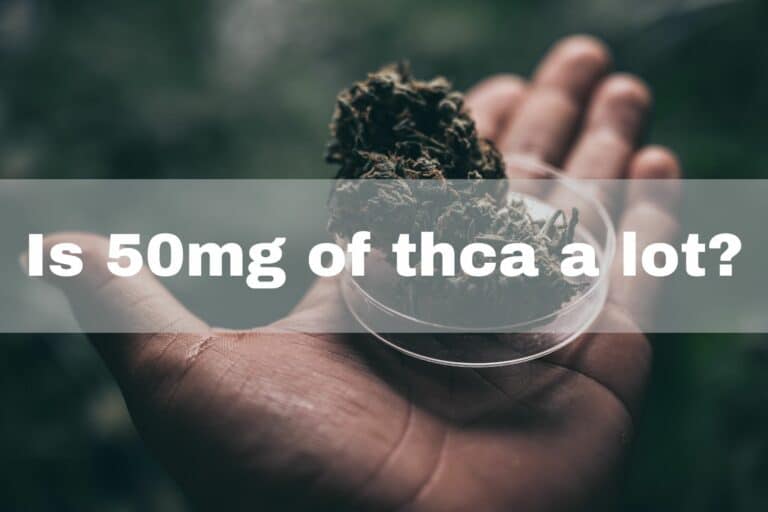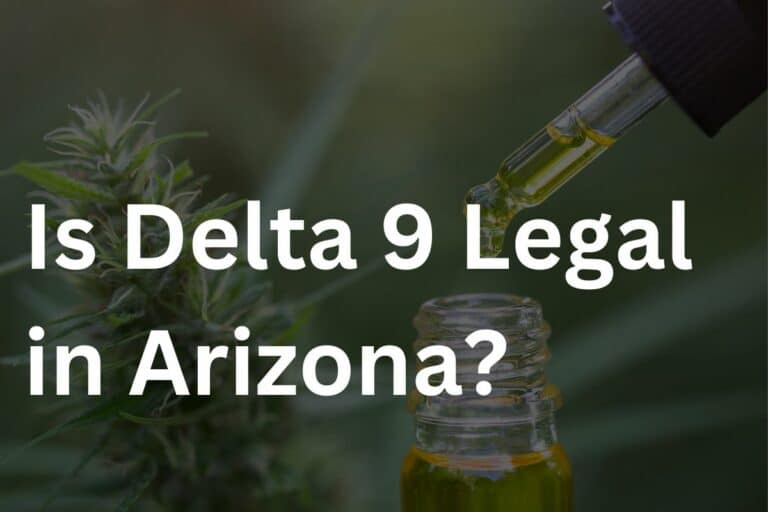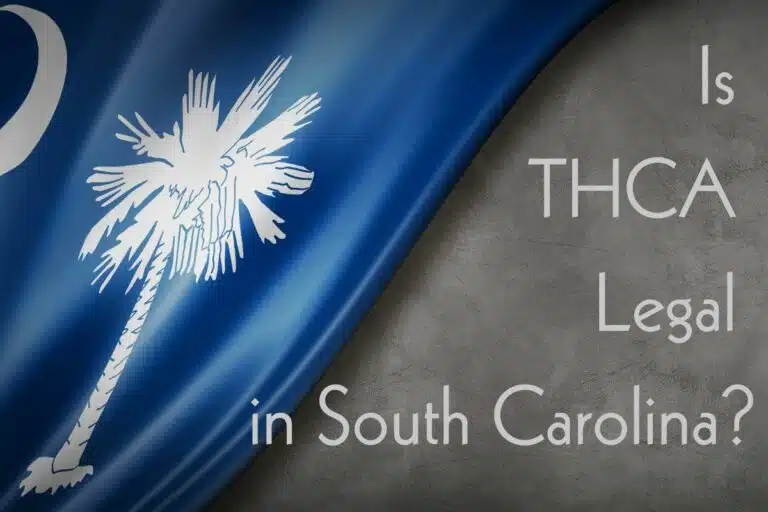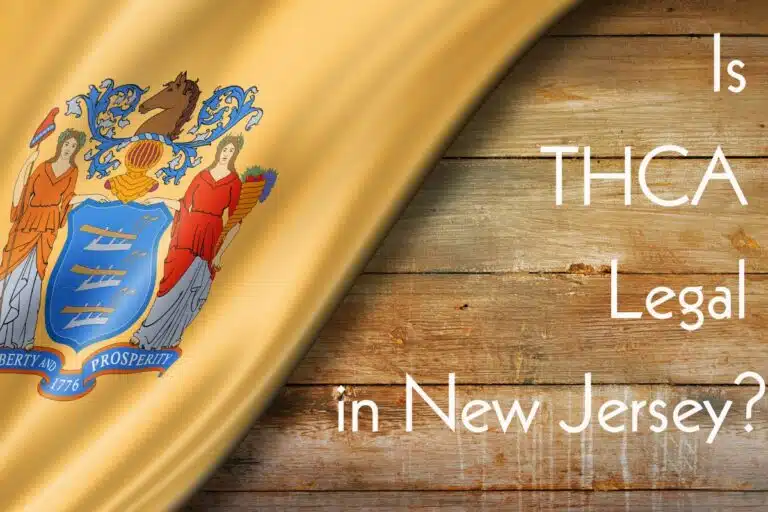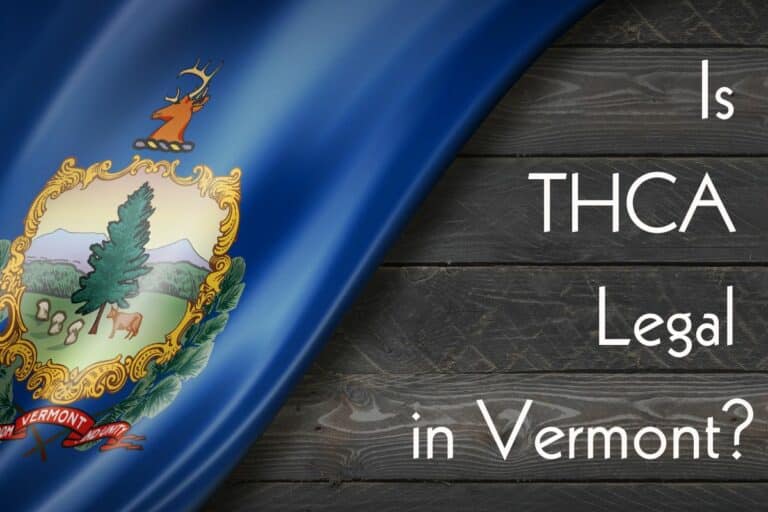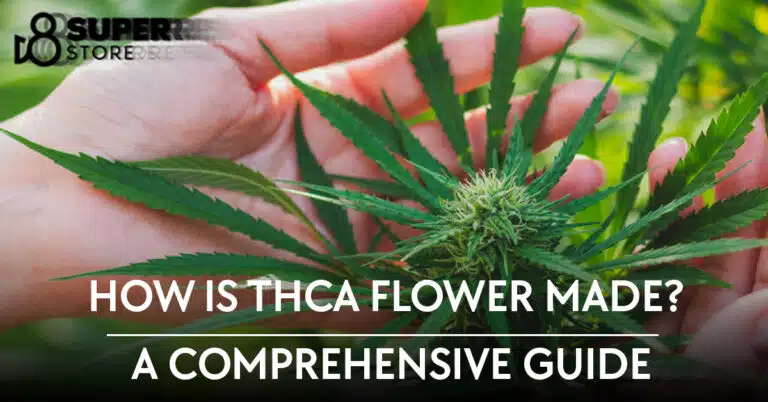Is THCa Legal in New Hampshire: Understanding State Laws
Jumping into **cannabis laws** feels like you’re riding a wild ride, especially when you bump into THCa hanging out in New Hampshire. Have you ever bumped into THCa? It’s short for tetrahydrocannabinolic acid, and here’s a zinger: it won’t make you high. Although it’s a cousin to THC—the ingredient in pot that blasts you off to space—THCa stays chill until heat turns it into THC. That’s when the magic happens. This transformation makes THCa a curious case for the laws. Figuring it all out is like trying to catch a shadow in a storm, but trust me, it’s a lot more exciting. If you’ve got a knack for solving puzzles about weed’s mysterious kin, congratulations because you’re in for a treat. Prepare to dive into secrets that’ll make you the know-it-all at your next get-together.
In New Hampshire, the legal status of cannabis has evolved over time. The state has implemented measures to legalize the medicinal use of marijuana, which means that under certain regulated conditions, the use of cannabis, including THCa, is permitted for qualifying patients. However, the recreational use of cannabis remains illegal, suggesting a nuanced legal environment where the form and intent of use are decisive factors.
Understanding the distinctions within New Hampshire’s cannabis laws is crucial for compliance. While possessing marijuana for recreational purposes could lead to legal ramifications, the context changes for patients who are part of the state’s medical marijuana program. It is essential to stay informed and ensure that any engagement with cannabis or its derivatives aligns with current state laws.
Overview of Cannabis Law in New Hampshire
In New Hampshire, your understanding of cannabis regulations is crucial, as the state has distinct rules for medical and recreational use.
Current Legal Status of Cannabis
Cannabis, commonly known as marijuana, is currently illegal for recreational use in the State of New Hampshire. However, the state has decriminalized possession of small amounts; you are subject to only a civil penalty for possessing up to three-quarters of an ounce of marijuana. Despite decriminalization, possession of larger amounts, sale, and cultivation can lead to significant legal penalties.
Medical vs Recreational Use
Medical Use: If you have a qualifying medical condition, New Hampshire law permits the use of marijuana for medical purposes. Patients and caregivers registered with the state’s Therapeutic Cannabis Program may legally possess and use medical cannabis.
Recreational Use: Recreational marijuana use remains illegal. The state has made attempts at legalization, but as of now, no legislation has successfully passed to change this status. However, you should note that cultivation of hemp, following federal guidelines, is legal in the state.

THCa and Its Chemical Nature
In this section, you will gain an understanding of the chemical structure of THCa and how it relates to THC. Discover the distinct characteristics that differentiate these cannabinoids and their effects on the human body.
Understanding THCa and THC
Tetrahydrocannabinolic acid (THCa) is the non-psychoactive precursor to delta-9-tetrahydrocannabinol (THC), which is found in the resin glands of the cannabis plant. When cannabis is aged or subjected to heat through a process called decarboxylation, THCa is converted to THC.
Decarboxylation Process:
- Before: THCa (non-psychoactive)
- After: THC (psychoactive)
This transformation is significant because it changes the way that the compound interacts with your body’s endocannabinoid system, specifically your cannabinoid receptors.
Cannabinoids and Psychoactive Properties
THCa does not produce psychoactive effects because it does not bind well to the CB1 cannabinoid receptors in your brain. Conversely, THC has a strong affinity to bind to these receptors, which results in the psychoactive effects commonly associated with cannabis use.
Cannabinoid Receptor Binding:
- THCa: Weak binding to CB1 receptors (Non-psychoactive)
- THC: Strong binding to CB1 receptors (Psychoactive)
It is crucial to note that the psychoactive properties of THC are what distinguish it from THCa, as they contain similar molecules yet have vastly different effects on the human body.

Federal and State Legal Framework
Understanding the legal status of THCa in New Hampshire involves navigating both federal law and varying state cannabis laws. Pay close attention to the THC thresholds and how federal legislation intersects with local laws.
Federal Law and Farm Bill Implications
Under federal law, cannabis is classified as a Schedule I substance, which includes all cannabinoids. However, the 2018 Farm Bill creates an exception for hemp, defining it as cannabis that contains no more than 0.3% delta-9 THC on a dry weight basis. While THCa is not technically regulated, if it is heated and converts to THC, causing the plant to exceed the 0.3% threshold, it may not comply with the Farm Bill’s definition of hemp and thus could be considered illegal at the federal level.
Comparison with Neighboring States Laws
Your understanding of New Hampshire’s stance on THCa should also consider the cannabis laws in surrounding states. Maine, Massachusetts, and Vermont have legalized cannabis for adult use, which includes varying regulations around THC and THCa. In contrast, Rhode Island allows cannabis for medical use but has stricter controls for recreational cannabis. Therefore, while some neighboring states offer a more permissive environment for THC and its precursors, the legal landscape remains a patchwork that requires careful consideration when juxtaposing state and federal regulations.
Legality of THCa in New Hampshire
When addressing the topic of THC’s legality in New Hampshire, it is vital to differentiate between various cannabinoids and understand the specific state regulations that apply to them.
State Regulations on Cannabinoids
In New Hampshire, hemp-derived cannabinoids, including THCa, are legal under state law. This is aligned with the Federal Farm Bill of 2018, which declassified hemp as a controlled substance and allowed for its cultivation and sale. State laws stipulate that hemp-derived products should contain a THC concentration of 0.3% or less on a dry weight basis.
Possession, Cultivation, and Distribution Laws

You are allowed to possess hemp-derived THCa in New Hampshire, provided it meets the regulatory requirements of under 0.3% THC content. Cultivation of hemp for commercial purposes is permitted and regulated by the New Hampshire Department of Agriculture, Markets, and Food. However, for the purchase and distribution of THCa products, licensed retailers and cultivators must comply with state regulations to ensure legality. Unauthorized cultivation or distribution of cannabis or its derivatives, outside of state hemp program guidelines, remains illegal.
Understanding Hemp-Derived Products
As you navigate the landscape of cannabis products, it’s essential to understand the regulatory nuances affecting hemp-derived products and their chemical variants like delta-8 and delta-9 THC in states like New Hampshire.
Legal Status of Hemp Products
Hemp-derived products have garnered significant attention following the federal legalization under the Agriculture Improvement Act of 2018, often referred to as the Farm Bill. This legislation differentiated hemp from marijuana based on the concentration of delta-9 tetrahydrocannabinol (delta-9 THC). In New Hampshire, as in many states, hemp products are legal if they contain no more than 0.3% delta-9 THC on a dry weight basis. The cannabinoid profile is crucial; products derived from hemp, including CBD, must adhere to this threshold to be considered non-controlled substances.
Delta-8 and Delta-9 THC Variants
Delta-8 THC is another cannabinoid found in hemp and marijuana. It has risen in popularity due to its milder psychoactive effects compared to its more potent counterpart, delta-9 THC. However, the legal status of delta-8 THC can be confusing. While hemp-extracted delta-8 is chemically distinct from delta-9 THC, it has faced legal scrutiny because it is often produced through the chemical conversion of CBD in a lab, hence raising questions about its natural occurrence. Remember, when delta-9 THC levels exceed the legal limit due to heat or extracted concentration, the product becomes federally illegal. Products that maintain compliance with the legal threshold of delta-9 THC and do not use synthetic methods to increase delta-8 concentrations remain within legal bounds.

Consumer Information
As you navigate the market, it’s crucial to understand both the legal landscape and the safety implications of THCa in New Hampshire. This will ensure you make well-informed decisions regarding the purchase and use of cannabis products.
Safe Use and Accessibility
In New Hampshire, THCa itself is not classified separately from other cannabinoids under state law, and its legality falls under the state’s cannabis regulations. If you’re an adult, you are entitled to possess and consume THCa within the boundaries of the law. However, unlike CBD which is widely available, THCa is predominantly found in dispensaries where the sale of cannabis is regulated.
Cannabis-infused gummies, often containing both THCa and CBD, are accessible in these regulated environments. While they offer a discreet and easy method of consumption, you must be 21 or older to purchase them. It’s essential to start with a low dose and go slow, especially if you are new to cannabis edibles, as their effects can take longer to manifest compared to other consumption methods.
Product Testing and Labeling Requirements
Product safety is a priority. In New Hampshire, dispensaries are typically required to sell products that have been through rigorous product testing. This ensures that the potency and purity meet state standards, providing you with accurate information about the THC content.
It’s imperative for you to read the product labels carefully. Labels must disclose the levels of THCa, THC, and CBD, and should follow a state-mandated conversion formula to determine total THC when both THCa and THC are present. This transparency helps you make safe choices about the products you consume.
Impact of Legislation Changes
As you navigate the evolving landscape of cannabis laws, it’s crucial to understand how recent legislative actions may affect your interactions with cannabis products, especially THCa, in New Hampshire.
Recent Cannabis Legislation Movements
New Hampshire’s cannabis legislation underwent significant scrutiny, making headway towards adjusting the legal status of cannabinoids like THCa. The Farm Bill of 2014 initiated a shift by federally redefining legal parameters for hemp and its derivatives, but it is your responsibility to stay informed as state-specific regulations can diverge. While recreational marijuana remains illegal in New Hampshire, the legislature has made incremental changes that could alter the legal landscape of cannabis, including THCa.
Implications for Consumers and the Market
These legislative amendments have tangible consequences for consumers. You might find that while legalization efforts broaden, law enforcement, and market responses are in flux. If contemplating purchasing or using THCa in New Hampshire, you would be well-advised to regularly consult state laws, as they can have direct implications on both the availability of these products and the potential legal repercussions of their use. Notably, the changing tides of cannabis legislation can lead to a dynamic shift in both consumer behavior and how businesses operate within the state.
Cannabis Use and Public Health
When considering the intersection of cannabis use and public health in New Hampshire, it’s important for you to understand the individual health implications and the manner in which cannabis laws are enforced.
Health Considerations of Cannabis Use
The cannabis plant contains several cannabinoids, with THC (Δ9-tetrahydrocannabinol) being the primary psychoactive component. When you consume cannabis, whether by smoking, vaping, or cooking into edibles, THC content plays a crucial role in the effects experienced. Elevated levels of THC can increase the risk of acute harm, particularly from high-potency cannabis products. When cannabis is transformed into edible forms, THCa, a non-psychoactive precursor, converts to THC, influencing potency and impact on health.
Enforcement of Cannabis Regulations
In New Hampshire, the legal landscape surrounding cannabis use is shaped by stringent regulations that govern the usage and distribution of these products. The enforcement of cannabis laws ensures that THC levels are monitored and that public health standards are maintained. As you navigate the legal cannabis market, be aware that regulations are in place to protect your health by controlling the quality and safety of cannabis products available for consumption.
Comparison with Other States
| State | THCa Legal Status in 2022 | Notes |
|---|---|---|
| New Hampshire | Generally illegal | New Hampshire has strict cannabis laws. THCa is likely treated similarly to THC. |
| California | Legal for medical and recreational use | California has legalized both medical and recreational cannabis. THCa is subject to regulations. |
| Colorado | Legal for medical and recreational use | Colorado has legalized both medical and recreational cannabis. THCa is subject to regulations. |
| Oregon | Legal for medical and recreational use | Oregon has legalized both medical and recreational cannabis. THCa is subject to regulations. |
| Washington | Legal for medical and recreational use | Washington has legalized both medical and recreational cannabis. THCa is subject to regulations. |
| Massachusetts | Legal for medical and recreational use | Massachusetts has legalized both medical and recreational cannabis. THCa is subject to regulations. |
The legal landscape for THCa varies significantly across the United States. In this section, you’ll see how New Hampshire’s stance on THCa compares with recreational and medical cannabis policies in other states.
Recreational Use in Different States
Recreational cannabis use is legal in states like California, Washington, Oregon, and Colorado, where you can find laws permitting the use of products containing THCa. In contrast, states like Idaho, Wyoming, and Kansas maintain strict prohibitions against recreational cannabis, with no legal recognition of THCa whatsoever.
Medical Cannabis Programs Across States
Medical marijuana programs vary widely. In California and Colorado, where medical cannabis was first legalized, comprehensive programs include THCa as one of the many cannabinoids available for patient use. Conversely, more restrictive states like Texas and Alabama have very limited medical programs, where the legal status of THCa can be ambiguous, typically allowing low-THC content or CBD-only products for certain medical conditions.
Meanwhile, Florida’s and New York’s medical cannabis programs allow for a broader range of THC-containing products, including THCa, for a wider variety of medical conditions. In comparison, Minnesota maintains a medical program, but with a more limited qualifying conditions list and available forms of cannabis.
In the context of New Hampshire, the medical cannabis program permits the use of products that may contain THCa, particularly for patients suffering from qualifying medical conditions. Your access to medical cannabis, including THCa, is also subject to such regulations within the state.

Future Outlook
As you explore the evolving landscape of cannabis legislation and product innovation, particularly in states like New Hampshire, staying informed on projected legal changes and upcoming trends in cannabis product development is crucial to navigating the market responsibly and effectively.
Projected Legal Changes and Trends
It’s important to watch for shifts in recreational use regulations, as these will likely signal broader legal changes. New Hampshire, having not legalized recreational cannabis to date, could be influenced by legislative movements in surrounding states. Keep an eye on how federal agencies like the DEA and FDA adjust their stances, which could affect state-level laws. Any revisions to the legal status of cannabinoids such as Delta-10 THC will tip the scales for the industry’s regulatory framework in the near future.
Innovations in Cannabis Product Development
The cannabis industry is fast-paced when it comes to product innovation. With changes in legality, you might see an upsurge in products rich in lesser-known cannabinoids like THCa or Delta-10 THC. Formulations that deliver unique experiences or potential health benefits without the psychoactive effects are anticipated to expand. This can include breeding cannabis strains or producing extracts focusing on specific cannabinoids, meeting a growing consumer demand for tailored cannabis experiences. Keep watching this space, as it is ripe for rapid advancements and novel offerings.
Legal Assistance and Resources
When navigating the legality of THCa in New Hampshire, it’s important to know where to find reliable legal support and educational materials. The following subsections will direct you to resources that can assist with understanding state cannabis regulations.
Finding Legal Support in New Hampshire
In New Hampshire, legal support regarding cannabis substances like THCa can be sought from specialized attorneys knowledgeable in state cannabis laws. For up-to-date legal assistance:
- Check with Local Bar Association: The New Hampshire Bar Association provides a lawyer referral service that includes attorneys who specialize in drug policy and cannabis law.
- Legal Clinics: Some non-profit organizations may offer legal clinics where you can get advice on cannabis-related laws.
- Private Law Firms: Look for law firms in New Hampshire that specialize in cannabis law and have experience dealing with cases around THCa regulation.
Educational Resources and Advocacy Groups
Staying informed is crucial when dealing with substances like THCa, which may have complex legal status. For education and advocacy information:
- State Resources: Visit the New Hampshire government’s official websites for publications on cannabis laws, including those affecting THCa.
- Advocacy Groups: Join local or national groups that focus on cannabis advocacy. They often provide educational resources and updates on legal changes. For instance, NORML has chapters across the States that offer information on cannabis regulations.
- Academic Institutions: Contact local universities which may conduct and share research on cannabis law and policy.
Frequently Asked Questions
In addressing the nuances surrounding THCa legality in New Hampshire, several key questions emerge. This section navigates those intricacies, offering precise and informative answers to common inquiries.
What are the regulations regarding the shipping of THCa products?
The shipment of THCa products in New Hampshire is governed by state law, which aligns with federal regulations. As THCa is a precursor to THC, it may fall under the same restrictions, so it is essential to comply with both state and federal laws when shipping such products.
How does the legality of Delta-9 THC compare to that of THCa in New Hampshire?
In contrast to THCa, Delta-9 THC is strictly regulated in New Hampshire. While medical use of cannabis is permitted, recreational use of Delta-9 THC remains illegal, suggesting tighter controls compared to THCa.
What is the current federal legal status of THCa?
Federally, THCa falls into a grey area due to its non-psychoactive nature. However, it is classified similarly to THC when derived from marijuana, which is a Schedule I drug under the Controlled Substances Act.
Can consumption of THCa result in psychoactive effects?
Consuming THCa in its raw form generally does not lead to psychoactive effects. This is due to the fact that THCa has to be decarboxylated, which typically occurs through heating, to convert it into psychoactive THC.
How does the potency of THCa contrast with that of Delta-8 THC?
THCa is not psychoactive until converted into THC, meaning its potency is not comparable to that of Delta-8 THC, which is psychoactive on its own. Potency typically refers to the strength of the psychoactive effects, which THCa lacks unless decarboxylated.
What happens to THCa when it is heated or aged?
When THCa is heated or aged, it undergoes decarboxylation, a chemical reaction that removes a carboxyl group and releases carbon dioxide, effectively converting THCa into THC, the psychoactive compound found in cannabis.


